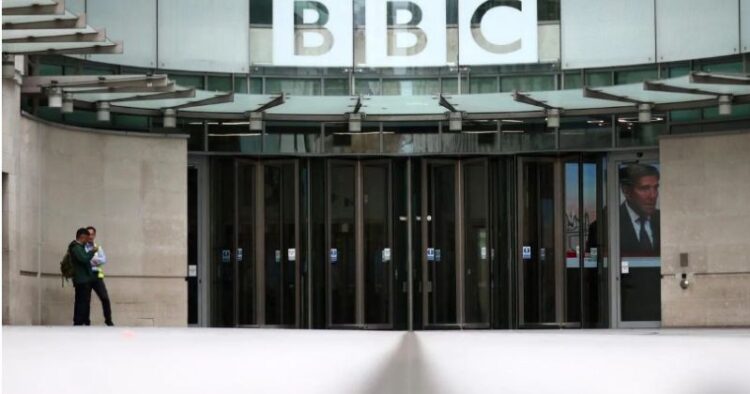BBC has transferred its newsroom publishing licence in India to Collective Newsroom, marking the first instance of a public service broadcaster relinquishing control to a private limited company in any part of the world. The move follows a series of events, including searches conducted by the Income Tax Department at BBC offices in India last year and changes in Foreign Direct Investment (FDI) regulations.
Founded by four former BBC employees, Collective Newsroom is set to kick off its operations from April 10, positioning itself as a wholly India-based entity. The company will focus on producing content for the BBC’s digital platforms in various Indian languages, including English, Hindi, Gujarati, Marathi, Punjabi, Tamil, and Telugu.
According to records from the Ministry of Corporate Affairs (MCA), Collective Newsroom Private Limited was incorporated on October 27, 2023. Rupa Jha, CEO of Collective Newsroom, clarified that while BBC is its inaugural client, the company is not exclusively tied to the broadcaster.
BIG BREAKING NEWS 🚨 After IT raids & tax searches, BBC hives off its newsroom in India. MASSIVE KHELA 🔥🔥
BBC India hands over its publishing license to a private limited company established by Indians ⚡
From next week, operations will commence under the banner of a new… pic.twitter.com/ohu7WnIhG1
— News Algebra (@NewsAlgebraIND) April 7, 2024
The restructuring of BBC’s operations in India stems from amendments in FDI rules introduced in 2020, which mandated a 26 per cent FDI cap in the digital media sector. Companies surpassing this limit were required to adjust their foreign investments to comply with the regulation by October 2021.
BBC World Service India, the entity under scrutiny, is predominantly owned by its UK-based parent organisation, with 99.99 per cent of its shares held by the latter.
As part of this transition, BBC has reportedly sought a 26 per cent stake in Collective Newsroom, as disclosed by sources. Rupa Jha clarified that amid legal considerations and strategic assessments, setting up Collective Newsroom emerged as the most pragmatic solution to uphold BBC’s interests in the Indian media landscape.
After this move of the BBC, 200 of its employees in India have been moved to to the Collective Newsroom.
On September 18, 2019, the DPIIT issued a new set of regulations for FDI in various sectors. These regulations are always announced by virtue of Press Notes. These press notes stipulate various guidelines and regulations for FDI in the country. This includes sectoral limits for foreign investors, requirements that the investee company has to comply with or fulfil to allow FDI, minimum investment required in the sector, and most importantly, other criteria like the structure of the transaction, whether the investment is under automatic route or government approval route, etc. The regulation under question concerning the BBC was announced in Press Note No. 4 (2019 Series).
The said Press Note No 4 (2019 Series), dated September 18, 2019, stipulated a limit of a maximum of 26 per cent investment by foreign investors in Indian digital media companies. This was by adding a new clause 5.2.7.2.3 under para 5.2.7:2 of the Consolidated FDI Policy dated August 23, 2017. This new clause 5.2.7.2.3 dealt with “Uploading / Streaming of News and Current Affairs through Digital Media”.
The then-existing clause 5.2.7.2.3 was renumbered to 5.2.7.2.4. The intent of this FDI regulation was to bring Digital Media in line with Print Media. It is pertinent to note that foreign investors, including foreign media houses, can hold a maximum 26 per cent equity stake in any newspaper or magazine in India.
When the DPIIT announced the sectoral limit for foreign investment in Digital Media, there was a requirement for clarification. The major confusion was regarding the definition of “Digital Media” and whether the said media house, i.e. a news website or a news aggregator or a news app, fell within the ambit of Digital Media. Hence, the Government came out with a clarification on October 16, 2020. The clarification dispelled those concerns and made it amply clear that Press Note 4 shall apply to the under-mentioned three types of media entities which are registered or domiciled within India:
1. Digital media entity streaming or uploading news and current affairs on websites, apps or other platforms;
2. News agencies which gather, write, and distribute or transmit news, whether directly or indirectly, to digital media entities and/or news aggregators; and
3. News aggregators use software or web applications that aggregate news content from various sources, such as news websites, blogs, podcasts, video blogs, user-submitted links, etc., in one location.
Once the clarification was issued, digital media entities like Yahoo News and Huffington Post completely closed down their Indian operations. Both entities were owned by Verizon Media. Verizon Media felt it would be appropriate to close down Indian operations totally and exit India.
However, the BBC continued to operate without complying with the FDI Policy. A foreign holding of more than 26 per cent in BBC India was in violation of Press Note 4 (2019 Series). The BBC was required to dilute its stake to 26 per cent or exit India before October 2021. However, it continued operating in India to date without diluting its stake.



















Comments